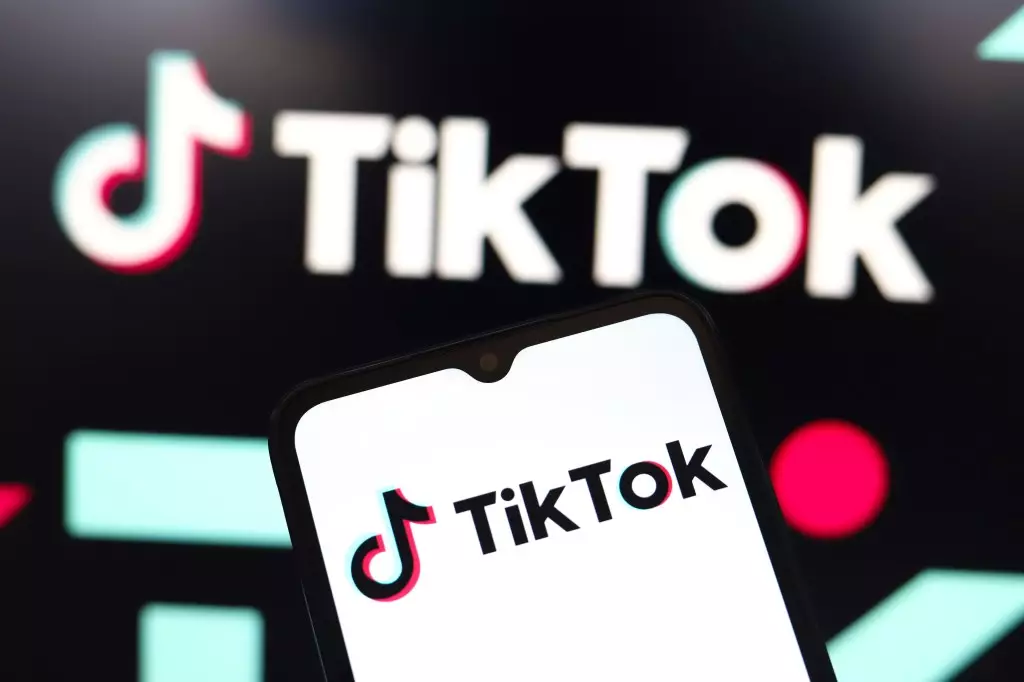In an audacious move, TikTok appears to be orchestrating a major transformation that could redefine its position within the United States. Rumors suggest the platform is preparing to debut a new version tailored specifically for American users, potentially independent of its Chinese parent company, ByteDance. This development signals more than just a technological update; it reflects a strategic maneuver in the broader geopolitical tussle over data security and digital influence. With TikTok’s existing infrastructure slated for discontinuation by March 2026, the launch of a fresh, U.S.-oriented app could signify an effort to preserve its market dominance amidst mounting regulatory pressures.
This ambitious plan occurs against a backdrop of intricate negotiations with U.S. authorities and political figures. The Trump administration had previously pushed for a complete divestment or outright ban, citing national security concerns tied to alleged data harvesting by the Chinese government. Although President Biden later blocked the ban, the federal government remains skeptical, actively seeking alternative solutions to curtail Chinese influence. The upcoming U.S.-centric version could serve as a compromise—retaining user trust while sidestepping accusations of foreign espionage—yet it also raises questions about long-term independence and corporate sovereignty.
Moreover, the timeline is ambitious: a new app could be available in U.S. app stores by September 5, aligning just ahead of the Sept. 17 extension of protections that have kept TikTok operational. The strategic timing hints at a calculated effort to maintain its market presence while navigating the uncertain waters of U.S. regulation and potential sale talks. The very idea of a “U.S. only” TikTok demonstrates a bold willingness to separate from its Chinese roots—an act that could redefine cross-border digital ecosystems and challenge existing tech paradigms.
Geopolitical Tensions and Corporate Realignment
The ongoing saga of TikTok’s future cannot be divorced from the broader geopolitical context. The platform’s potential sale to a consortium of wealthy American investors underscores a shift from a Chinese-backed tech innovator to a domestically controlled entity. President Trump’s recent public remarks about a “group of very wealthy people” interested in acquiring TikTok reflect the U.S. government’s fluctuating stance on foreign technology firms. His prediction that China’s President Xi Jinping might approve the sale adds a layer of diplomatic optimism, yet the reality remains complex.
This high-stakes game is deeply intertwined with U.S.-China relations, which have been strained by trade disputes, tariffs, and mutual accusations of data misconduct. The intention behind the sale and the proposed American version of TikTok could serve dual purposes: placating U.S. regulators who demand greater data control and offering ByteDance a way to retain its lucrative market share without outright withdrawal or ban. However, doubts persist about whether a truly independent platform can be achieved without Chinese involvement, especially given the regulatory hurdles and diplomatic negotiations that loom large.
Furthermore, TikTok’s situation mirrors wider trends where global tech giants are being scrutinized and broken down into national segments to better control information flows. This move could set a precedent for other platforms, challenging the idea of truly global digital ecosystems and forcing tech companies to rethink their international strategies. The outcome of TikTok’s transformation could influence not only U.S. policies but also global standards for data privacy, cross-border data transfers, and platform sovereignty.
Power Struggles and the Future of Digital Sovereignty
Ultimately, TikTok’s potential shift embodies a larger debate about digital sovereignty and the power dynamics in the tech industry. The platform’s plan to develop a U.S.-centric version might be portrayed as a victory for national security but also risks being perceived as a strategic tool in broader geopolitical warfare. It highlights the increasing pressure on Chinese tech companies and the growing demand for American digital independence, even within a landscape historically dominated by multi-national corporations.
The implications extend beyond mere business strategy. If successful, TikTok’s transformation could symbolize America’s assertion of digital dominance, emphasizing control over user data and content. Conversely, if it falters under regulatory scrutiny or diplomatic challenges, it could undermine the platform’s credibility and user trust. The stakes are high—this isn’t just about an app; it’s about control, influence, and the future shape of global digital culture.
As TikTok stands at this crossroads, one thing is clear: the platform’s next chapter will be pivotal. Whether it emerges as a symbol of innovation, a tool of geopolitical maneuvering, or a cautionary tale about the limits of corporate independence, its journey encapsulates the fierce contest for digital supremacy in an increasingly fractured world.
